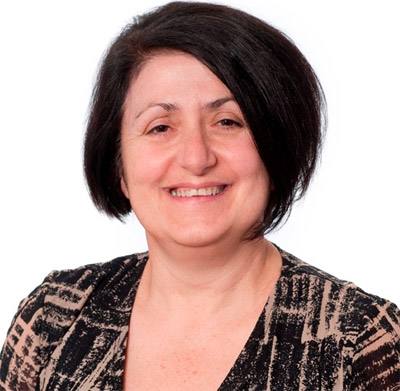Dr. Georgia Karabatsos Teen Weight Crisis Interview

Dr. Georgia Karabatsos Teen Weight Crisis Interview
Weight crisis of Australian teens, yet 1 in 10 would suffer in silence and the weight crisis worsens once teens hit 18.
New research shows over half (52%) of Australian teens are concerned they are too fat or too thin yet 1 in 10 would suffer in silence. 1 in 5 parents are concerned their teen is either over or underweight but are largely oblivious to the crisis of communication over the matter.
The research, conducted by the Medibank 24/7 Health Advice Line, questioned both teens and parents of teens. It revealed three-quarters of parents questioned believed their teen would talk to them about weight concerns. In reality, once a teen hits 18 they are significantly less likely to speak to their mother or father for advice, and nearly twice as likely as younger teens to not seek any help at all.
Alarmingly the body image crisis appears to worsen once teens hit 18 with those in the 18-19 year old age bracket more influenced by celebrities and friends than those in the younger age group. Over a quarter (26%) of 18-19 year olds are concerned about their weight compared to celebrities they admire, as opposed to just 4% of 13-17 year olds. Encouragingly, older teens are more likely to speak to the family doctor, go to a medical centre or call a free phone line for health advice than their younger counterparts.
Out of anyone, including family, friends, medical professionals and school nurses, teens are most likely to speak to their mothers (63%), followed by friends (36%) with fathers way down the list at 19%. Of the parents consulted, only a third would go onto get medical advice if concerned about their teen's weight.
Commenting, Dr. Georgia Karabatsos, Medibank 24/7 Health Advice Line Medical Director says: 'Body image is a topic that is more openly addressed than in previous generations. However, this research demonstrates that parents can be misguided about whether their teenage children will turn to them if they have concerns about their weight and there is a clear issue that as children become older they turn less to their family and are more influenced by external pressures such as celebrities. This could be both distressing for parents as well as detrimental to the health and wellbeing of our teenagers.
"It is important that weight and body image issues are addressed properly before they turn into more serious cases. Parents and teens should feel able to seek advice from health professionals - we offer a 24/7 Health Advice Line for all Medibank members with hospital cover which the whole family can call and speak to a qualified nurse confidentially, any time of the day or night"
Lauren Nugent, Advanced Sports Dietitian (SDA) and Accredited Practising Dietitian, Eat Smart Nutrition Consultants says: 'It's alarming to see that body image worsens in teens as they near adulthood, and that they are less inclined to seek help. It unfortunately also highlights that more education, especially around healthy diets and nutritional information, is required in the younger life stages to equip older teens for the challenges ahead."
Interview with Dr. Georgia Karabatsos
Question: Did it surprise you that over half of Australian teens are concerned they are too fat or too thin?
Dr. Georgia Karabatsos : Weight and body image are significant issues for many young Australians, partly due to the influence of celebrities, social media and friends. As Australian teens become older, they are more easily influenced and less likely to seek any advice or to speak to anyone, especially their parents. There is no surprise, as unfortunately, many teens struggle with their body regardless of their size and look up to sample sizes, which they believe is the attractive ideal of what they should look like.
Question: Body image appears to worsen once teenagers hit 18 years old; why do you think this is?
Dr. Georgia Karabatsos : When teens become older, it becomes more difficult for them to openly talk about issues concerning their weight, as they may feel embarrassed or uncomfortable. The ideal body type constantly surrounds them and they are more aware of dieting techniques they see everyday. They are also still in a period of adolescence.
Question: How can we combat these increasing statistics?
Dr. Georgia Karabatsos : We can combat these increasing statistics by:
Positive eating behaviours: Live a healthy lifestyle without an emphasis on -dieting'
Positive image behaviours: Don't criticise your own appearance or compare yourself to others and celebrities. Be comfortable in your own skin
Talking to someone: Parents and teens should be open to talking about everything, including their friends in a supportive manner. Parents should be accessible at times teenagers want to talk,
Positive self-esteem: Positive self-esteem is an important factor. Smile, be confident in yourself, appreciate your skills and compliment someone else
Speaking about media images: Images in the media are often unrealistic and airbrushed. It is important to discuss openly and raise awareness of this issue
Question: Why do you believe 1 in 10 Australians would prefer to suffer in silence?
Dr. Georgia Karabatsos : There are many factors that influence teens - in relation to body image, some may not see it as a health concern, they may feel embarrassed or uncomfortable discussing it. Another factor may also be that they may not have easy access to a doctor or other suitably qualified health professional. Teens often compare their looks with other's or with media images of the -right' way to look, and could feel that it is particularly hurtful to speak about it.
Question: What signs can parents and friends look for, to ensure their children/friends are not suffering in silence?
Dr. Georgia Karabatsos : Personality traits such as perfectionism and self-criticism can influence the development of body weight issues of any age. Encouraging people to talk about their feelings and being open about any distress is important. Parents and friends should look out for signs such as:
Behavioural changes such as a preoccupation with size
Negative comments about eating and food
Anxiety around meal times
Changes in school performance and attendance
Obsessive self-scrutiny in mirrors and clothing
Thinking negative thoughts about their body
Frequent comparison of their own body shape and size to other people or celebrities
Envy of a friends or the body of a celebrity in the media
Question: How can parents approach the issue of weight concerns with their teenager?
Dr. Georgia Karabatsos : Parents can approach the issue of weight concerns by:
1. Listening openly and without judgment
2. Pick up on cues and be ready to ask questions when it is relevant to the conversation with your teenager
3. Be available to talk when your teenager wants to talk
4. Use language that expresses your concern for them, talk about feelings rather than food
5. Get help from professionals if you have real concerns, as the issue of body weight is a challenging area
Question: How important is early education regarding body image and how can it be taught?
Dr. Georgia Karabatsos : Open conversations about the many factors that influence body image should be part of the way we communicate at all ages. Most important is modeling good positive behaviors ourselves. Children and teenagers need to see us have a healthy attitude to food and exercise and to our own body image. Being a good role model is important; children tend to model what we do more than what we say. Parents need to be conscious on how to talk to them about the influence about the media, celebrities and their peers. It is important to educate them to accept their own body image, and parents need to set a good example.
Question: Can you tell us about the Medibank 24/7 Health Advice Line:
Callers can speak to a nurse about any immediate health symptoms to find out:
If they need to see a doctor
How they can manage their symptoms
General information about health matters and issues
Question: Who can use the Medibank 24/7 Health Advice Line?
Dr. Georgia Karabatsos : Medibank Private members with hospital cover can use the Medibank 24/7 Health Advice Line.
Question: What are your goals for Body Image and Eating Disorders Awareness Week?
Dr. Georgia Karabatsos : We would like to see an increased awareness of some of the issues facing our young people and to encourage everyone to speak to someone about any issues they may have concerning their weight and body image. This week aims to promote positive body image, encourage healthy eating and fitness habits and educate parents on how to recognize eating and body image issues.
Interview by Brooke Hunter
MORE
- How to Conquer Bad Winter Health Habits
- 1.5 million for 1.5 million Victorians...
- Be U Not a Bully Forum for Parents and Teens
- New Screening Test Recommended To Help Prevent...
- Vitamin D Mushrooms May Solve Health Dilemma
- Gemma Howorth World-First Solates Class Interview
- Federal Government Clarifies Carer Allowance...
- Fiona Clark Sleep Problems Linked to Bullying...
- Elective Surgery and Emergency Care on Increase
- Emotional Stress Proves to be a Pain in the Back
- CPSA applauds Choice IPL and Laser Regulation...
- Karen Kaye Complementary Medicines Are...
- Danielle Stowasser Pain Relief Interview
- Dr Weng Sam Type 2 Diabetes Medication Interview
- Blood Clots and Stroke Fourth Indicator
- An Unhealthy Mouth can lead to Heart Disease
- Sharing MS Diagnosis Key To Retaining Employment
- CanTeen Counselling Service
- Australia Leads The Way With HPV Vaccination Of...
- Chloe Cunningham No More Angels Lost to...





